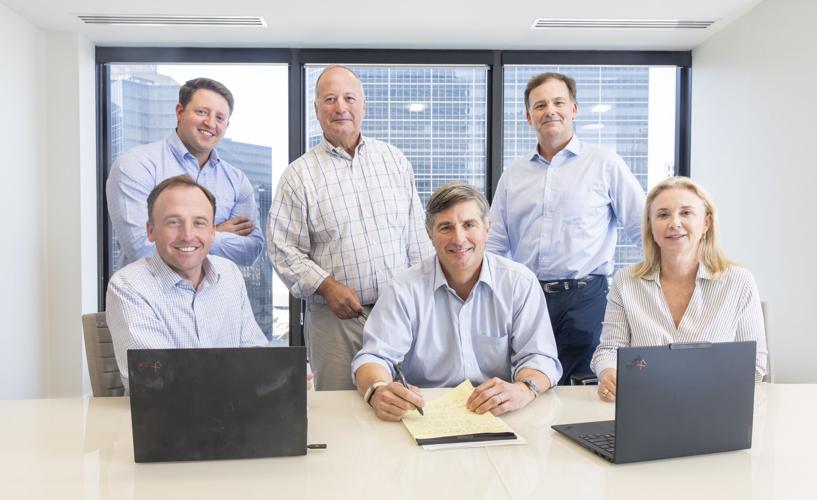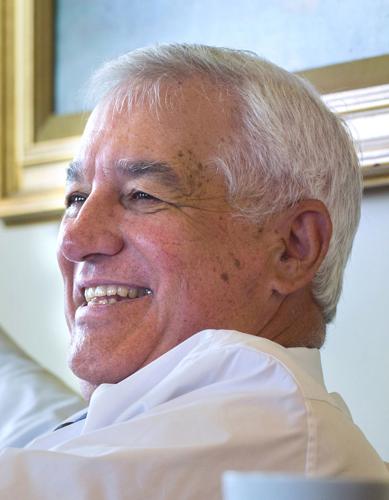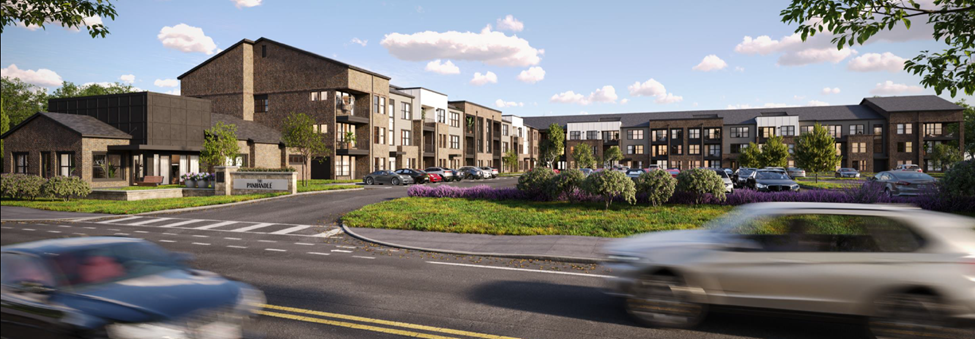Four longtime south Louisiana companies have been acquired in the past three months, all by out-of-state private equity firms, raising alarms among civic leaders about the loss of corporate decision-making in the local economy.
But flying under the radar are a small group of homegrown private equity firms that in recent years have raised billions of dollars, bought their own out-of-state companies and are starting to create a local investment ecosystem that is turning heads outside of Louisiana.
Bernhard Capital Partners, founded a decade ago in Baton Rouge, is by far the largest. It has raised more than $5.5 billion in five investment funds and owns 21 companies, including Delta Utilities, which recently bought Entergy’s natural gas business.
New Orleans-based Black Bay Partners launched its third fund earlier this year after raising more than $500 million in less than a decade and currently has 15 energy-focused companies in its portfolio.
Carr’s Hill Partners, founded by former Bernhard partner David deLaureal, raised $210 million in its initial fund, which closed in March, on top of some $200 million it had previously raised to fund four companies it owns.
And LongueVue Capital in Metairie, which was founded in 2001, has raised more than $850 million from five funds with a portfolio that includes more than a dozen "middle-market" companies in a variety of industries.
Compared with the largest private equity firms in the country — Blackstone has more than $1 trillion in assets under management — the local firms are small. But some market watchers say they are proving themselves in institutional and private investing — a slice of Wall Street that's never really been present in south Louisiana — and creating opportunities that could help attract other investment firms to the area.
“National endowments, pension funds and foundations are coming to New Orleans and Baton Rouge to invest with these firms, in the same way they would a firm in New York, Chicago or Houston,” said Gary Sernovitz, a New Orleans-based financial writer and managing director with Houston-based Lime Rock Partners, a $10 billion private equity firm.
“These are not just local, boosterish ventures,” he added. “These firms have shown they can win in the competition for capital.”
Proof of concept
Private equity has been around since the 1940s, but it didn’t become widely used as an investment vehicle until the 1980s, when Wall Street firms began taking over vulnerable companies in leveraged buyouts, often selling them for parts or merging them into other companies at great profit.
Many private equity firms today avoid the strategies that earned the industry its corporate raider reputation, with some focused on rolling up industries into national brands or buying midsized companies and bringing in experienced managers to boost growth. They've also evolved into an alternative to stocks or bonds for wealthy investors because of looser regulatory restrictions and higher returns. There are plenty of critics, who point to instances where regional companies are swallowed up and higher profits are eked out of longtime customers.
But the industry's success at generating returns has meant continued growth. Over the past decade, private markets have seen assets under management increase from just under $3 trillion in 2010 to $11.7 trillion in 2022, according to EQT, which tracks the industry.
During the same time, private equity firms have expanded into a broader array of industry sectors, buying up medical group practices, pharmaceutical companies, fitness chains and local media groups, to name a few.
While the largest national firms have multiple funds that invest across industry sectors, local and regional firms in south Louisiana are narrowly focused, mostly around energy and industrial services, which works to their advantage, Sernovitz said.
“They’ve all said, ‘This is a market where we can invest in reasonable valuations and generate returns that investors expect,’” he said. “The fact that they are now on second, third and fourth funds proves they are successful.”
Focused approach
Black Bay Partners has built its firm investing in energy and chemical companies in North American that are focused on innovation, according to Michael LeBourgeois, who founded the firm in 2016 with Guy Cook and Tom Ambrose.
Its companies are involved in things like recycling fuel stockpiles so they can be reused by industry, developing more effective capture-carbon methods and using artificial intelligence to squeeze more oil and gas out of rocks and shale.
Most of Black Bay’s investments are between $10 million and $50 million, and include not only a capital infusion but a growth strategy and management expertise.
“We put seasoned executives in place, introduce the companies to new customers and help them find other businesses to buy,” LeBourgeois said. “When you’re a specialist and backing companies in high-growth mode, there are a lot of ways to help your portfolio companies.”
Carr’s Hill has a similar approach, though it’s not specifically focused on the energy sector. Employing a strategy deLaureal learned at Bernhard Capital nearly a decade ago, Carr’s Hill targets regional companies, many family owned and operated, that haven’t kept up with the times and are losing ground or, perhaps, need a succession plan and exit strategy.
“We bring a management team to the table on day one to help them manage growth,” deLaureal said. “There is a ton of sweat equity that goes into it.”
The firm targets companies valued between $20 million and $200 million and is focused on the South — a region where its team knows the culture and has the advantage of personal and professional connections.
“We acquire things between Texas, Florida and the Carolinas, deLaureal said. “I can be in front of people quickly.”
Growing trend
Bernhard Capital started out with much the same approach, when former Shaw Group founder and CEO Jim Bernhard and his partner and co-founder, Jeff Jenkins, launched the firm in 2015. Initially, Bernhard Capital had just four portfolio companies under its umbrella, each comprised of smaller companies like E.P. Breaux Electrical in Lafayette and MCC in Metairie, the late Joe Jaeger’s mechanical construction company.
Over the decade, its growth has outperformed even its founders’ expectations, Jenkins said recently. In recent years, it has branched beyond energy and industrial services into regulated public utilities. Today, it owns seven natural gas, water and wastewater utilities, with another utility deal in New Mexico pending regulatory approval.

Jim Bernhard, Chief Executive Officer of Bernhard Capital Partners, talks in his office in downtown Baton Rouge,Tuesday, Sept. 11, 2018. Bernhard stepped down as CEO of The Shaw Group in the wake of that company’s 2013 acquisition by CB&I. After that, Bernhard, Jeff Jenkins and a handful of other top executives from The Shaw Group founded BCP, a private equity firm that promised to invest in companies that operate in the energy services industry. ORG XMIT: BAT1809121806466873
Despite its growing national footprint, nine of Bernhard Capital’s companies are based in Louisiana, which is home to 6,000 of its total workforce of 25,000.
“Across Louisiana and the southeast, we see thousands of thriving businesses that want access to growth capital,” Jenkins said. “We’re glad to support those businesses and to also see a growing trend of investment firms in Louisiana that can be partners in providing that critical capital.”
'Less exotic'
Benson Capital Partners, Saints and Pelicans owner Gayle Benson’s investment arm, is among the investment firms providing capital to regional businesses. Founded in 2020, the firm has raised more than $100 million across two funds. One is focused on venture capital — making small investments to help startups — the other is a real estate fund.

Benson Capital Partners real estate fund has invested in student accommodation in the Dallas suburb of Denton, the Panhandler at Rayzor Ranch at Panhandle Street.and East Park Boulevard.
New Orleans also has several smaller venture funds, including the Louisiana Fund, Tulane Alumni Ventures and 1834 Ventures, focused on seeding and growing local tech companies and small, innovative startups.
All of them are valuable to the local entrepreneurial ecosystem, experts say, but they provide a different function than the more traditional private equity firms, such as Bernhard Capital.
Having private equity firms in south Louisiana with successful funds and robust portfolios helps attract other investment firms to the area — and the high-end attorneys and accountants that serve them, Sernovitz said.
“Having a community invites community,” he said. "The more there are, the more that will come and the less exotic being in New Orleans will seem."





